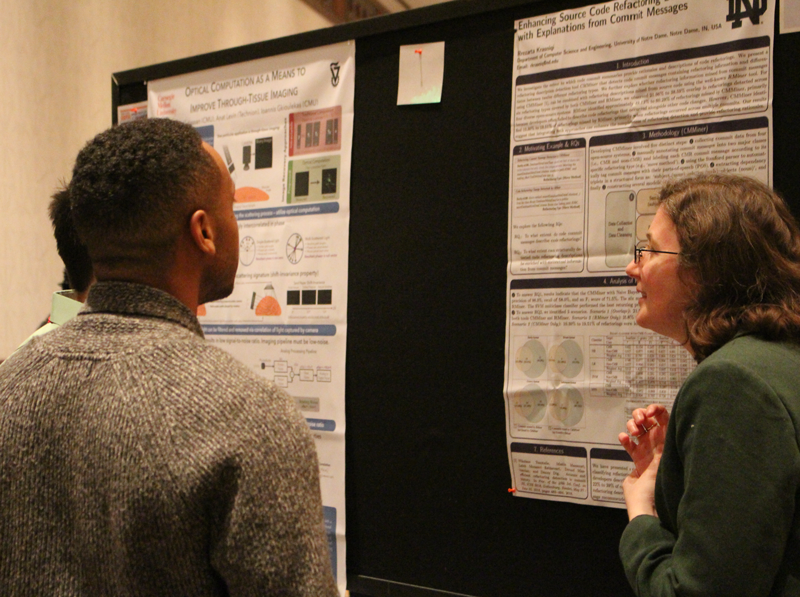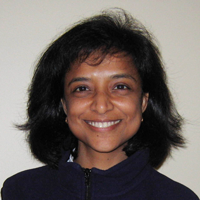Expanding the Pipeline: CRA-WP Grad Cohort for URMD Workshop – An inclusive environment for diverse graduate students in computing
 On March 5-7, 2020, CRA-WP hosted the 2020 Grad Cohort for Underrepresented Minorities and Persons with Disabilities (URMD) Workshop in Austin, TX. Now in its third year, the workshop brought together approximately 200 graduate students from groups that are underrepresented in computing (including Alaska Native, Black/African American, Hispanic, Native American, Native Hawaiian and other Pacific Islander, and/or Persons with Disabilities).* Collectively, they represented a diverse set of computing-related research areas and more than 90 institutions. By developing meaningful connections with a focus on mentoring and community building, the workshop aims to increase representation from these groups in computing research. Graduate students also learn research skills and career strategies from experienced researchers and professionals.
On March 5-7, 2020, CRA-WP hosted the 2020 Grad Cohort for Underrepresented Minorities and Persons with Disabilities (URMD) Workshop in Austin, TX. Now in its third year, the workshop brought together approximately 200 graduate students from groups that are underrepresented in computing (including Alaska Native, Black/African American, Hispanic, Native American, Native Hawaiian and other Pacific Islander, and/or Persons with Disabilities).* Collectively, they represented a diverse set of computing-related research areas and more than 90 institutions. By developing meaningful connections with a focus on mentoring and community building, the workshop aims to increase representation from these groups in computing research. Graduate students also learn research skills and career strategies from experienced researchers and professionals.

This year’s workshop was organized by program chairs Ramón Cáceres (Google), Lori Clarke (University of Massachusetts Amherst), Ayanna Howard (Georgia Institute of Technology), and Meredith Ringel Morris (Microsoft Research). During the opening session, the program chairs encouraged participants to take advantage of the opportunities available. An inspiring keynote “Fail Your Way to Success” by Armando Fox (University of California, Berkeley) detailed how he overcame professional failures, and shared how he navigated the challenging path to a successful career. Many students participated in the poster session, where they shared their research and received feedback from other participants, speakers, and sponsor representatives. A major highlight was the Friday evening reception sponsored by Google, featuring music, a photo booth and delicious barbeque. Students also had numerous mentoring opportunities including one on one sessions for career advice and resume/CV feedback.

At this event, CRA emphasized its dedication to providing an inclusive environment by promoting its Code of Conduct, making sure all attendees were aware of expectations and how to report violations.
Are the Grad Cohort Workshops having an impact? In videos from the 2019 workshops, students, speakers, and sponsor representatives share their thoughts on the program’s significant impact on them. And the CRA Center for Evaluating the Research Pipeline (CERP) has data that provides evidence that participants gain much from the opportunity to build community and fresh perspectives presented by speakers. Last fall, CERP published the infographic, “How Do the Grad Cohort Workshops Measure Up? Past attendees of both Grad Cohort for URMD and Grad Cohort for Women weigh in.”

Most of the respondents to the survey selected that the Grad Cohort workshops provide participants with:
- a positive, welcoming environment,
- personal career development-related topics important for current graduate students in computing,
- a safe space to discuss matters related to personal identity and intersectionality
- the ability to have frank conversations about issues that individuals and groups in computing face, and
- the ability to build lasting relationships with peers and mentors.
Thank You, Sponsors!
The 2020 Grad Cohort for URMD Workshop is made possible through generous contributions by Association for Computing Machinery, Computing Research Association, National Science Foundation, Facebook, Google, Microsoft Research, a private foundation, AccessComputing, Intel, SIGARCH, SIGCHI, SIGCOMM, SIGGRAPH, SIGHPC, SIGIR, SIGKDD, SIGOPS, SIGPLAN, SIGSOFT, WICARCH, AnitaB.org, Bloomberg, D.E. Shaw Research, IEEE-CS, TCCA, Raytheon, SIGACT, SIGCSE, SIGMICRO, SIGMOBILE, and SRC.
This program is based upon work supported by the National Science Foundation under Grant Number (1840724). Any opinions, findings, and conclusions or recommendations expressed do not necessarily reflect the views of the National Science Foundation.
*Data from the upcoming 2019 CRA Taulbee survey indicate students from URM categories (Alaska Native, Black/African American, Hispanic, Native American, Native Hawaiian and other Pacific Islander) represent 4% of students enrolled in Ph.D. programs.






